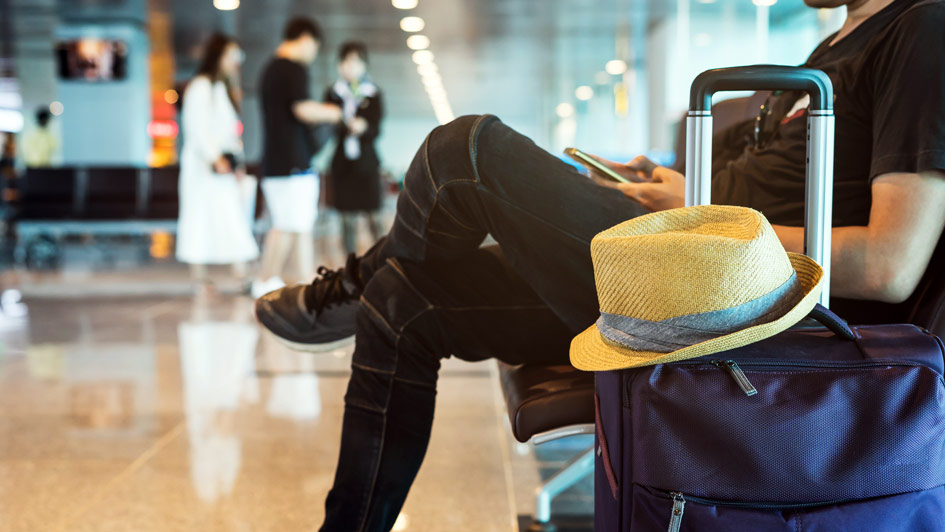
From a much-needed vacation or a lengthy trip for work, traveling means making preparations for your heating and cooling system. You can't use it if you’re away, so you can make adjustments as needed to conserve your energy use. Just the same, you don’t want to just shut it down for the entire time you're out of the house.
In general, it’s best to leave your HVAC system on and just make adjustments depending on whether it's winter or summer. That way you can minimize energy costs without stressing about coming back to an uncomfortable home. We’ll explain why you should avoid turning your HVAC system off as well as the best thermostat settings for different times of year.
This Is Why You Don't Leave Your Thermostat Alone
While you might be tempted to leave your HVAC system off before a trip, this will sometimes end up leading to big problems by the time you get back. This is notably true if the weather will be severely hot or cold while you’re away from home.
As an example, turning the HVAC system down during the summer will sometimes lead to very high humidity. Not only will your home feel like a swamp when you return, but it may have also invited mold/mildew growth or pest infestations.
And in the winter, letting your house get cold might lead to pipes freezing or even bursting. It’s an awful feeling to come home from a nice trip only to come across extensive water damage near a broken pipe.
Energy-Efficient Thermostat Settings While at Work
You can optimize the temperature even as you come and go to work. Because you’re not home for about 8 hours or longer, it doesn’t make sense to keep an empty home heated or cooled as if you were there. In general, it’s encouraged to turn up the thermostat by 5 degrees or so. Meaning that if you prefer a comfortable 72 degrees, try adjusting it to 76-77 while you’re out.
But you could save even more if you’re willing to further adjust the temperature. As stated by the Department of Energy, you might save nearly 10% on your HVAC spending by increasing the adjustment to 7-10 degrees.
Ideal Thermostat Settings While Away from Home in Summer
If you're on a longer trip in the heart of summer, you can make larger adjustments. This prevents wasting energy while still protecting your home from the issues that come with leaving it without air conditioning. Something like 5 degrees is recommended for brief trips while a larger adjustment of 10 degrees is ideal if you’ll be away from home for 2 weeks or longer. If you like keeping the house at 72 in the summer, 78-82 will offer beneficial results.
Best Thermostat Settings While on Vacation in Winter
To determine the best thermostat setting for a winter vacation, just lower the temperature by the same amount you would adjust it in summer. 68 is a frequent winter thermostat setting, so turning it down to 63-58 will prevent ice from forming on pipes while limiting how long your furnace operates.
A Smart Thermostat Can Help: Benefits of a Smart Thermostat
A great way to optimize your home’s HVAC system while out of the house is using a smart thermostat. This innovative type of programmable thermostat uses intelligent software to monitor your preferred comfort habits. It gradually understands these preferences and makes automatic adjustments to the schedule for better energy efficiency. And with Wi-Fi connectivity, you can remotely access your heating and cooling with a smart device like a phone or tablet.
Smart thermostats are loaded with features to help you save on your energy bill. For example, specific models can monitor electricity prices to boost heating or cooling when prices are lower. They can be used with high-efficiency, variable-speed equipment to fine-tune how long your HVAC system needs to run. It’s the ideal tool to streamline how you control your comfort system. If you’re thinking about investing in a smart thermostat, there are multiple ways you can lower your costs, in essence getting a smart thermostat for free. The next time you leave for vacation, you can enjoy true peace of mind that your HVAC system won’t stir up any trouble while you’re gone.



